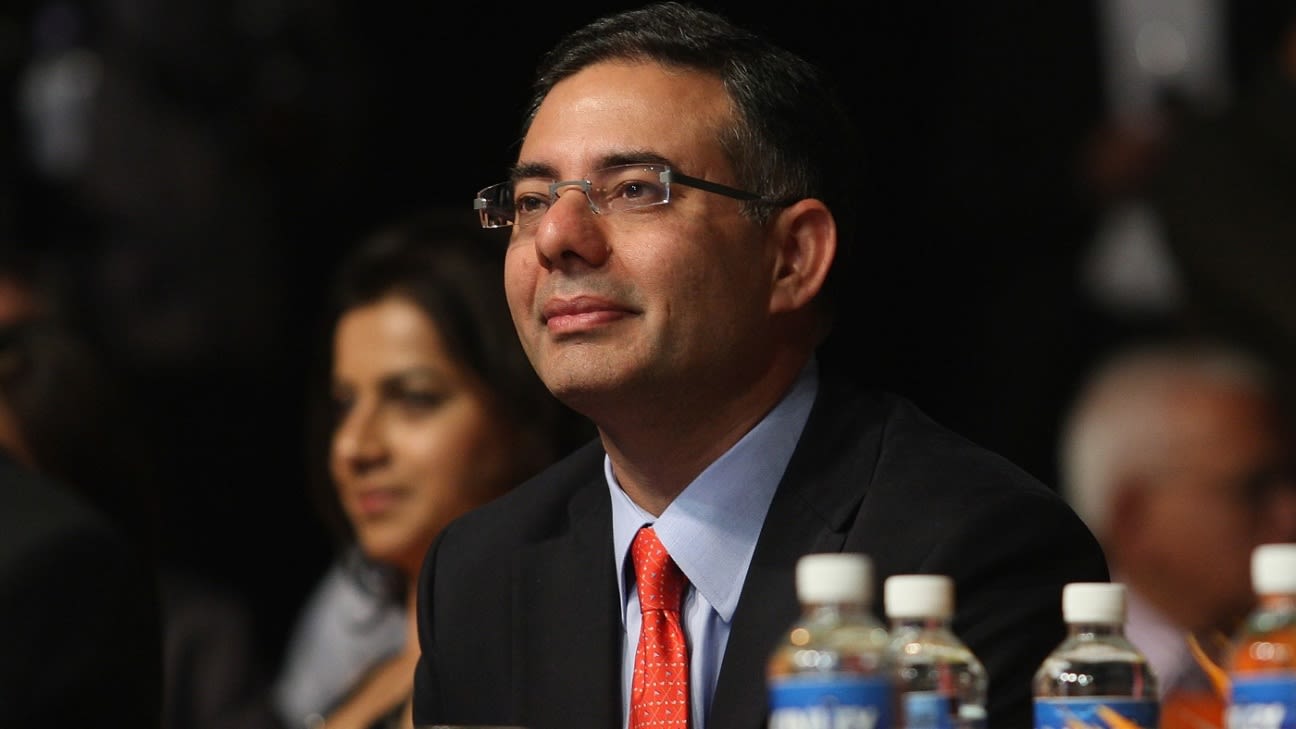
Adverse reports of his management style have emerged in an internal culture review of the body
Manu Sawhney, the ICC chief executive, has been asked to go on leave after adverse findings of his management style emerged in an internal culture review of the sport’s governing body. The move does not yet signal a permanent exit, though those with knowledge of the review and its findings believe that any return to the role looks unlikely.
Sawhney has not responded to messages sent to him by ESPNcricinfo asking for a comment on the developments. In his place for now, while a longer-term solution is found, is Geoff Allardice, the ICC’s general manager cricket. On Wednesday, Sawhney’s name was conspicuously absent from an ICC press release announcing Southampton as the venue for one of the ICC’s flagship events, the World Test Championship final. Allardice was quoted, though he has also been an instrumental force in making the WTC a reality.
Sawhney was appointed to the position in January 2019, succeeding David Richardson after a seven-year stint, and took charge formally in April that year. He has since overseen a turbulent period in which he was one of the lead figures in an ongoing battle within the global body between two different visions of the future of the game.
The review which produced the findings took place in February and was carried out by PricewaterhouseCoopers (PwC). It was based on a number of one-on-one discussions across the organization: with the ICC Board and organisation leadership team, as well as a section of other employees. Based on the discussions, an anonymous survey was sent out for the entire organisation to complete, the end aim being to arrive at a picture of the culture of working within the ICC.
A number of sources have confirmed that the survey found Sawhney’s style of functioning problematic. But his impending exit must also be seen in light of the ongoing battle within cricket over the future of its calendar
Sawhney himself sent out an internal email detailing what the review would be about at the start of February, before sending a reminder a few weeks later. The ICC’s human resources committee, led by England and Wales Cricket Board chairman Ian Watmore, discussed the findings of the report with Greg Barclay, the ICC chairman, and sent a recommendation to the ICC Board to act against Sawhney, which has since been approved by the required majority.
Sawhney had been working from home for more than a week, although the official reason for it was that he was isolating after a family member has tested positive for Covid-19.
A number of sources have confirmed that the survey found Sawhney’s style of functioning problematic. But his impending exit must also be seen in light of the ongoing battle within cricket over the future of its calendar and, as one source pointed out, the review has been critical of the functioning of the Board as well.
Sawhney was at the forefront of a group of boards that had been lobbying for an extra event in the next ICC commercial and rights cycle, boards that relied more on ICC revenues than that from bilateral cricket.
That stance was being strongly opposed, predominantly by the BCCI, ECB and CA, who wanted an international calendar with greater emphasis on bilateral cricket. The three boards were also opposed to the move by Sawhney to open the hosting of ICC events in the next cycle to bids from members; in the last cycle, all senior men’s ICC events were held in Australia, England and India, having been decided in-house.
Sawhney was appointed by Shashank Manohar, the former ICC chairman. Manohar’s acrimonious relationship with the BCCI and his role in the move to roll back the Big Three in 2017 meant Sawhney’s relationship with the BCCI was never smooth. The election of Barclay to the chairmanship – itself the result of a laborious and fractious process – was a significant moment. Though he has brought more nuance to the argument, Barclay has spoken in favour of greater emphasis on bilateral cricket, and had opposed Sawhney’s push for more ICC events.
Sawhney arrived at the ICC after resigning from Singapore Sports Hub in May 2017. That exit had come soon after the emergence of a 26-page anonymous complaint, and a report in the Singapore-based Straits Times from May 2017, which said that Sawhney had gone on a leave of absence after the complaint. An internal investigation, however, found that no action was warranted.
